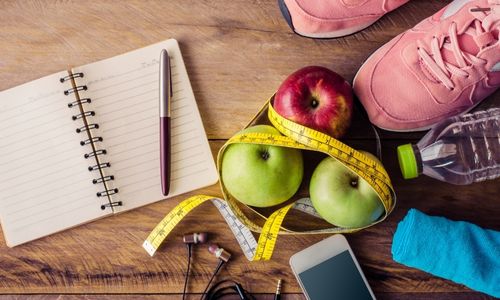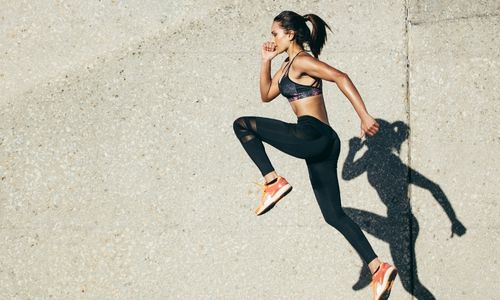The Importance Of Fitness
Being active can bring many benefits to our health and wellbeing, but many people still struggle to make it work for them; trying to fit it into their busy schedules, being consistent and to find something they truly enjoy.
We take a look at the importance of fitness and how being active impacts both our physical and mental health and wellbeing, as well as the steps we can all take, to make fitness work for us as individuals.
The Physical Health Benefits
Physical activity is a great way to improve cardiovascular and musculoskeletal health - to strengthen both the heart and skeletal muscles, to boost circulation, to provide nourishment throughout the body and to increase our stamina and endurance. Engaging in activities such as running, swimming, cycling and circuit training will help enhance muscle tone, bone density, range of movement and flexibility.
But exercise doesn’t have to be a full-on, intense cardio session every time, where you’re left feeling exhausted. Even elevating your heart rate moderately for 30 minutes a day with a brisk walk, is enough to bring about noticeable improvements to our fitness.
Key indicators for improved physical health and fitness are being able to work more intensively and for longer periods, being able to breathe deeper and recover quicker and having a lower resting heart rate.
The Mental Health Benefits
Being physically active doesn’t just bring about physical health benefits, it’s also good for the mind - an excellent way to stay physically and mentally fit. Exercise releases endorphins, or ‘happy hormones’, which help to boost our mood and to alleviate stress. The mind-body connection is the very foundation of yoga for example - by focusing on the breath, you enter into a calm or even meditative state, whilst engaging in physical poses (asanas), enjoying both physical and mental benefits.
Exercising outdoors in nature is another way to enhance our mental health through physical activity. Going for a long walk and taking in the views and hopefully some sunshine, can help us switch off from the everyday stresses and ground our emotions.
So how can you incorporate more activity into your life, or discover activities that work for you, to improve your overall physical and mental fitness? We take a look at some key pointers on the next page.
Make it Work for You
Get more active - everyday activities count. A great example of this is the widely recognised goal of 10,000 steps a day. Walk instead of drive. Use the stairs, instead of the lift. Get off public transport one or two stops earlier. Incorporate a walk into your day at lunchtime or after dinner. Make exercise part of your daily routine and keep that routine active.
Exercise regularly - to make visible and lasting gains in your health and fitness, you need to be consistent. Exercising to a schedule and incorporating a level of flexibility, whatever that looks like for you, is key to making positive progress. Finding a way to fit exercise around your work, family and social life isn’t always easy, so why not try and combine exercise with family time or catching up with friends.

Mix it Up - keep it interesting by doing a variety of exercises and activities. Doing a combination of LISS (low intensity steady state) such as running, cycling, swimming, brisk walking that are lower intensity for 45-60 minutes at a time at least twice a week, alongside HiiT (high intensity interval training) like short, intense circuit training sometimes including weights for up to 30 minutes twice a week, with a mobility and stretch activity such as yoga or Pilates for between 30 to 90 minutes at least once a week, will give you variety of exercise and intensity, as well as a comprehensive workout routine.
Crunch the Data - get to know your stats - what they are now and what do you want them to realistically be. This needn’t be overwhelming. Buying a set of digital bathroom scales and a health and activity tracker such as a FitBit or an Apple Watch will give you the insights you need. For example, how much do you weigh? How tall are you? What is your BMI? What is your hip to waist ratio? What is your muscle mass and body fat percentages? What are your activity levels like? What should your daily calorie intake be? What are your daily nutrition macros - your proportion of protein, fat and carbohydrates? How much activity should you do everyday? What sort of exercises and activities will suit you best? Understanding all of these elements of your body and health, will give you a clear idea of where you are and what you need to do, to achieve better health and fitness.
Nutrition - as the sayings go ‘you are what you eat’ and ‘you can’t out exercise a bad diet’. Speaking with a Nutritionist will help you understand your current health and eating habits, your relationship with food and triggers to any bad habits, the foods you should avoid and include, working with any specific dietary requirements, clearly defining your calorie intake and food group macros. Good nutrition will provide your body with the building blocks it needs to stay healthy.

